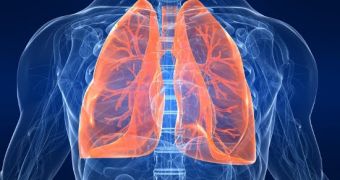A team of researchers working with the Temple University Hospital in Philadelphia now claim that, as surprising as this may sound, those who find themselves in dire need of a lung transplant need not worry too much about their donor's smoking habits.
More precisely, they maintain that heavy smokers are almost as eligible as non-smokers when it comes to their becoming lung donors, even if they averaged about 20 cigarettes per day for a period of time of over 20 years.
The scientists who looked into this issue reached these conclusions after analyzing data concerning the success rates of as many as 6,000 double-lung transplants that took place between the years 2005 and 2010.
Apparently, one in eight of the 6,000 such surgeries taken into consideration for this research involved a donor who used to be a heavy smoker.
After comparing the success rates of double-lung transplants that involved a smoker to the success rates of similar surgeries that involved a non-smoker, the researchers discovered that the figures were roughly the same.
In other words, the persons who received the organs had almost equal chances to survive the surgery and carry on with their lives, regardless of whether their donor used to be a heavy smoker or not.
As well as this, no significant differences concerning lung function were reported between these two groups of receivers.
Still, the scientists wished to emphasize the fact that the striking similarities between these patients' survival rates can only be explained when one takes into consideration that none of lungs belonging to smokers used in these surgeries displayed any sings of disease.
Daily Mail quotes Study leader Dr. Sharven Taghavi, who made a case of how, “Our findings demonstrate that the current criteria for lung transplantation can potentially be revised to include donors with a heavy smoking history.”
Furthermore, “This may help decrease the shortage of donor lungs and decrease waiting list mortality.”

 14 DAY TRIAL //
14 DAY TRIAL //